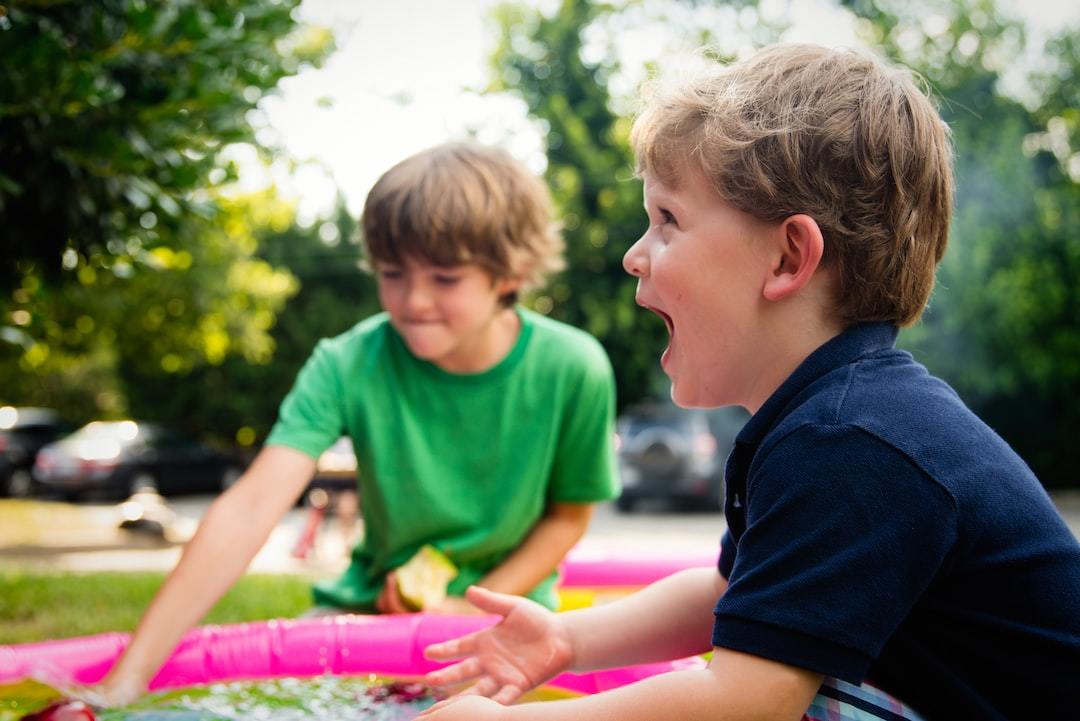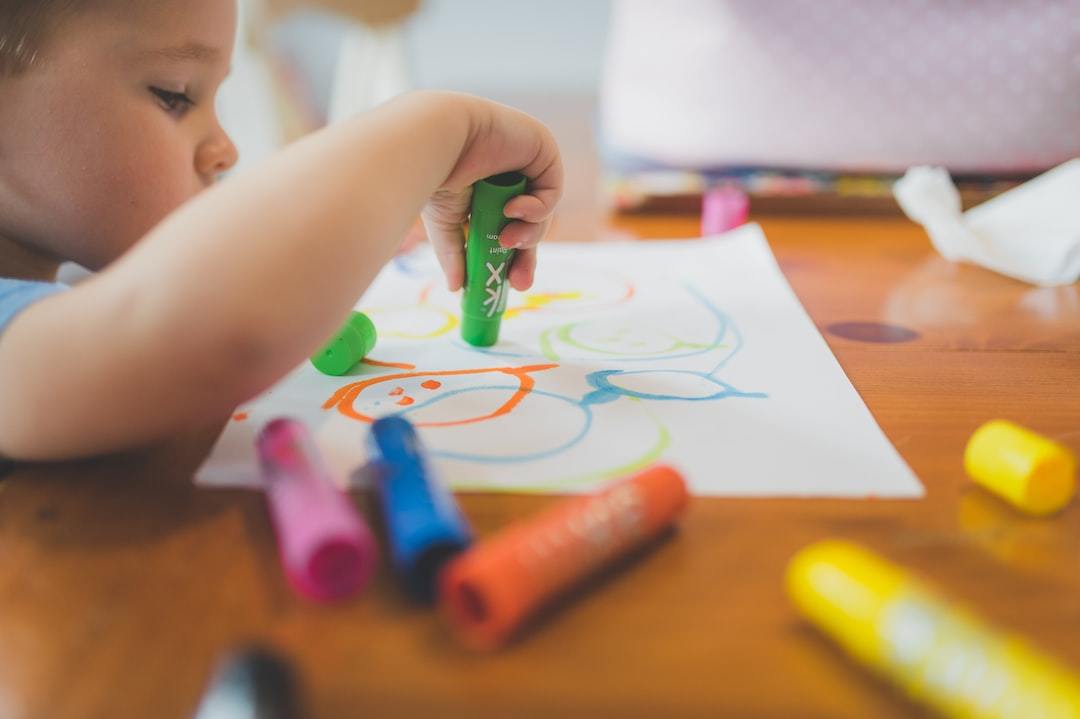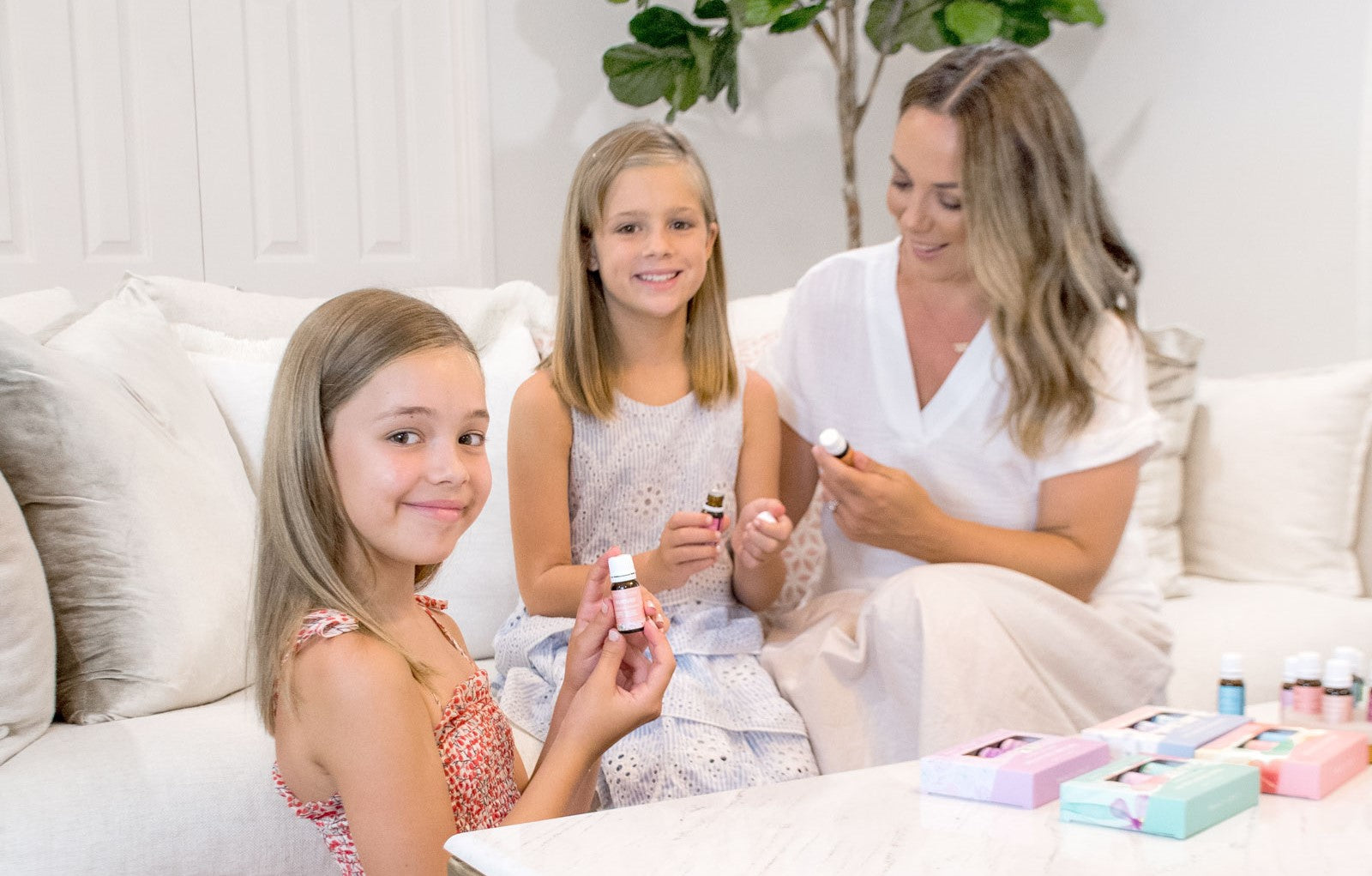Raising Confident Kids: Parenting tips for confident kids
Do you recollect your inaugural day of school? The anxiety, the anticipation, the excitement? Now imagine your child facing that same scenario. Only this time around, they're armed with a rock-solid sense of self-worth and an unshakeable confidence in their abilities. Here we will explore parenting tips for confident kids to help them on their journey of life.
Parenting tips for confident kids can turn this dream into reality.
We've all heard it - Confidence is key. It's what propels us to tackle difficult tasks head-on and bounce back from setbacks stronger than ever before. But how do we instill this priceless trait in our little ones?
The answer is straight forward. Their self-esteem. We'll also discover methods to foster resilience in them, so they can tackle life's challenges with grace and courage. Together, we're building a stronger future for our children.
Table Of Contents:
- Understanding the Importance of Building Confidence in Children
- Nurturing Self-Esteem Through Positive Self-Talk
- Fostering Independence Through Responsibility
- Cultivating Social Skills for Confidence
- Supporting Your Child Through Challenges
- Ensuring Emotional Safety for Confident Kids
- Conclusion
Understanding the Importance of Building Confidence in Children
The role of confidence in a child's development is akin to laying down strong roots for a tree. It gives them a firm starting point, fostering a growth mindset and nurturing essential character traits.
Children around age 5 are known for being blunt, often making cringe-worthy comments without understanding social norms. This stage provides an early opportunity to guide their behavior while promoting self-expression. A confident child learns that it's okay not just to express feelings but also to handle responses with grace.
Nurturing your child's self-esteem isn't about shielding them from life’s challenges or tough tasks. Rather, it involves providing tools that let them tackle difficult situations independently – one of the greatest gifts you can give as a parent.
Confidence building starts at home, according to Carl Pickhardt, Ph.D., psychologist and author specializing in adolescence. In his view, parents need to make sure their kids feel valued even when they make mistakes because those blunders build resilience over time.
Fostering Confidence Through Emotional Intelligence
Raising confident children requires teaching emotional intelligence from an early age. Understanding emotions helps young children manage their reactions better and builds real confidence, which is key for mental health and wellbeing later on.Dr. Joan Luby highlights how 'early childhood experiences have lasting effects on mental health' through her work as a nurse practitioner specialized in pediatric & adolescent medicine - Promoting Mental Health Wellbeing From Young Age.
Promoting Positive Mindset Early On
At the age of 5, children start to form an opinion about themselves that shapes their self-esteem. Therefore, fostering a positive mindset at this young age can have long-term benefits for your child's confidence - Building Positive Mindset in Young Children.Parents play a pivotal role here – making kids feel good about themselves and ensuring they don't lack confidence even when faced with difficult tasks.
Being a Positive Role Model for Your Child
As parents, we naturally serve as the first and most influential role models for our children. The way we behave, respond to challenges, and treat others has a profound impact on how our kids learn to navigate their world.
Your child looks up to you in more ways than one. They watch your every move - the way you handle stress, interact with others, or even express joy and gratitude. As per Research 2, warm and loving relationships are the foundation of children's self-esteem.
Encouraging Healthy Attitudes Towards Challenges
Tackling life's hurdles with positivity is crucial when it comes to being an effective role model. Let your little ones see that setbacks aren't catastrophes but rather opportunities for growth.
This doesn't mean hiding difficulties from them; instead show them how problems can be solved constructively without losing hope or composure. This helps your child understand that everyone faces issues but what matters is resilience in overcoming those hurdles.
Inspire confidence by allowing them into your problem-solving process where appropriate - this encourages openness while also demonstrating practical skills they'll need throughout life such as patience, critical thinking, and determination.
A valuable lesson here could be showing them how minor failures pave the path towards eventual success which can help build real confidence at any age.
The Power of Example
A powerful tool at disposal is setting good examples consistently over time – remember actions speak louder than words. Encourage healthy habits like regular exercise or reading daily so these become second nature to young minds who emulate their heroes (that’s us parents.). It might surprise you just how much they take notice.
It takes effort every day to model the behaviors and attitudes we hope our children will adopt. Though appearing to be a daunting task, having an upbeat attitude and demonstrating it through our actions can give our kids the optimal foundation for their own development.
As parents, we're the first role models for our kids. How we react to challenges and treat others shapes their world view. To raise confident children, face life's hurdles with positivity - don't hide difficulties but solve them constructively. Show your child that setbacks are growth opportunities, not disasters. Let them into your problem-solving process where suitable to foster resilience and independence in them.
Nurturing Self-Esteem Through Positive Self-Talk
One powerful tool for nurturing your child's self-esteem is positive self-talk. It's a habit that can help your child feel good about themselves and their abilities, boosting overall mental health.
The Power of Praise
Genuine praise plays a key role in developing positive self-talk habits. When you praise character traits like perseverance or kindness, it helps to build real confidence. This goes beyond simply praising achievements; it's about recognizing effort and resilience as well.
Praising the process also teaches kids to remain calm under pressure, an important skill when tackling difficult tasks later on in life. But remember - praise should be selective and sincere, otherwise its value diminishes over time.
Research shows, self-esteem involves liking oneself, feeling worthwhile, believing in one’s own abilities and recognizing personal strengths (Research 2). So by helping our children harness the power of positive thinking through consistent affirmation we are building up these essential elements of their esteem daily.
Fostering Independence Through Responsibility
Let's not underestimate the power of household chores in raising confident children. In fact, age-appropriate tasks can be a great starting point to help your child feel valued and build their self-esteem.
Remember that time when you saw your preschooler proudly showing off their well-arranged toy box? That was them feeling good about accomplishing something on their own. According to research, kids at this stage benefit from balanced feedback, valuing effort over winning, cooperative play, and being entrusted with responsibilities.
The Role of Chores in Confidence Building
Giving our little ones some jobs around the house helps them understand they're part of a team - the family unit. This understanding makes them feel more secure while boosting confidence.
Tasks like tidying up toys or helping set the table may seem simple but are instrumental for young children to start developing life skills early on. By allowing them to tackle difficult tasks suitable for their age, we show trust in their abilities which enhances feelings of competence and worthiness.
Mistakes: A Tool For Growth
No one is perfect. Mistakes happen even when adults do chores. But did you know mistakes could be among the greatest gifts we can give our kids?
Making errors during duties gives us an opportunity as parents to guide our children through fixing those mishaps positively. We need not panic; instead use these moments constructively so that they learn resilience while also realizing it’s okay not to get things right all times. This research piece suggests how such experiences contribute significantly towards building real confidence in children growing up.
Raising Confident Children Through Responsibility
Tasks and chores can be a great way to foster confidence in children, as they provide opportunities for learning, growth, and responsibility. Giving kids the opportunity to gain knowledge, expand their horizons, make errors and amend them is what helps build dependable individuals.
The journey might be messy sometimes but remember that confidence depends on experience and resilience – so let’s roll up those sleeves.
Household chores can play a big part in raising confident kids. By giving your little ones age-appropriate tasks, you're helping them feel valued and build self-esteem. Mistakes? They're not bad at all. In fact, they offer great opportunities for growth. Chores aren't just daily duties - they're tools to boost confidence and teach resilience.
Cultivating Social Skills for Confidence
As your child starts to engage more with the world, their social development becomes crucial. It's a period when they are developing the capability to communicate and create relationships, which can profoundly affect how kids think about themselves.
Managing social development in children involves teaching them empathy, respect for others, and conflict resolution skills. By doing so, you let your child navigate different social situations comfortably.
Embracing Diversity for Confidence
The diverse world we live in presents us with an opportunity: fostering inclusivity from a young age. This practice can make your child feel valued while also enriching their perspective on life.
Inclusion means embracing everyone's unique traits—both visible and invisible differences—and acknowledging that each person brings something valuable to the table. So whether it's interacting with classmates who hail from various cultural backgrounds or those using adaptive equipment at playtime due to physical disabilities—it all matters.
Promoting diversity not only contributes positively towards our society but also enhances personal growth by making kids feel good about accepting others as they are—an essential aspect of building confidence.
'Children become confident not just because of what they have achieved but largely because of what they think other people think about them.'
- Carl Pickhardt (Ph.D., Psychology)
* Research has shown that observing peer interactions closely is critical during this stage of life (Research 1). As parents or caregivers, we should address any negative responses promptly and effectively. This approach helps ensure children grow up feeling accepted instead of isolated.*
By cultivating social skills, we are equipping our children with one of the greatest gifts: real confidence. And remember, building confidence doesn't happen overnight—it's a journey that begins from an early age and continues as they grow.
Using Essential Oils and Diffusers as a tool
Essential oils are a great way to assist a childs emotional wellbeing to assist their confidence. Using a relaxing oil in a diffuser at night to ensure thet get a great nights sleep, and diffuse Confidence during the day.

Encouraging Exploration and Creativity
By giving children the freedom to explore, parents can foster confidence while also encouraging creativity and resilience. By allowing your kids to investigate their environment, you let them face challenges in a safe setting. This exposure not only bolsters creativity but also builds resilience when they tackle difficult tasks.
In line with this concept is unstructured playtime—an activity that has been found beneficial for toddlers. According to research, these little explorers develop confidence as they engage with different elements of their environment. So, whether it's splashing puddles or stacking blocks, each experience contributes towards building real confidence.
The Role of Play in Building Confidence
Kids are naturally curious beings—they learn best when left alone with toys or other objects that catch their interest. But don't mistake this solitary play as being non-productive; on the contrary, it plays an integral part in enhancing cognitive development and emotional growth at a young age.
Apart from teaching essential life skills like problem-solving and decision-making abilities, independent play encourages children to meet challenges head-on—a key factor for instilling self-confidence early on.
This form of engagement is more than just child's play—it’s training ground where mistakes build character traits such as resilience and tenacity—both vital components needed for tackling bigger hurdles later on in life.
To encourage exploration further, consider integrating open-ended toys into your child's collection—their undefined nature promotes imagination while offering countless ways your child can interact creatively.
Here are some ideas about how free-form playing can contribute greatly towards raising confident kids who aren’t afraid of taking risks or facing failure.

Supporting Your Child Through Challenges
Raising kids who can handle life's challenges is one of the greatest gifts a parent can give. How can we equip our kids to face life's obstacles? Let's dig in.
Promoting Resilience for Confidence
The key to raising confident children lies not just in celebrating their victories, but also supporting them through setbacks. This process starts from an early age and involves nurturing your child’s self-esteem so they feel good about themselves even when they make mistakes.
One effective strategy that parents often overlook is letting their young ones tackle difficult tasks on their own. It might be hard watching your little one struggle with tying shoelaces or solving puzzles, but remember, every small victory boosts their confidence and teaches them to face future difficulties head-on.
Mental health professionals agree: Self-esteem enables children to try new things, face challenges, and bounce back from setbacks (Research 2). So if you notice your child feeling down after failing at something, remind them that everyone makes mistakes—and these missteps are starting points for improvement rather than signs of incompetence.
If your kid feels valued by others (especially you) regardless of their performance level—it fosters a growth mindset which further bolsters real confidence. To instill this sense of worthiness within our kids is more vital than any other character trait we could teach because genuine confidence depends upon it.

Ensuring Emotional Safety for Confident Kids
Raising confident children is more than just fostering a growth mindset or encouraging character traits. It's about making sure they feel emotionally safe, valued, and understood from an early age.
According to pediatric & adolescent medicine experts, one of the greatest gifts we can give our kids is emotional safety. When young children experience consistent love and support, it significantly impacts their mental health and self-esteem.
Making Children Feel Valued
Your child feeling cherished isn't about empty praises but recognizing their efforts genuinely. This approach lets your child develop confidence in their abilities while knowing that mistakes build character rather than diminishing worthiness.
Nurse practitioner Carl Pickhardt emphasizes that when older children are faced with difficult tasks, knowing they're appreciated helps them tackle these challenges head-on without fear of judgment or failure.
Cultivating Open Communication
A starting point for creating this sense of emotional security involves open dialogue. Regularly asking your child and encouraging them to talk about how they feel not only makes them believe you value their opinions but also gives insight into any potential issues impacting their confidence levels.
Promoting Resilience through Supportive Parenting
- Kids who lack confidence often have trouble standing up for themselves. By demonstrating respectful communication at home, parents model behaviors helping kids stand firm against peer pressure.
- In times where school-age children stumble or face setbacks - whether academically or socially – being there as a comforting presence fosters resilience and strengthens real confidence over time.
- Last but not least, maintaining positive family relationships contributes to healthy development. Fostering an environment of love and acceptance at home can help to nurture a child's confidence in their external relationships.
Remember, confidence doesn't bloom overnight. It's a journey that starts from early childhood, growing over time as your child navigates through life experiences.
FAQs in Relation to Parenting Tips for Confident Kids
How do you raise a strong confident child?
Nurture your kid's self-esteem, let them tackle age-appropriate tasks, encourage exploration and creativity, support them through challenges, and provide emotional safety.
How do you raise a smart and confident child?
To foster both intelligence and confidence in kids: be their role model, nurture curiosity for learning new things while encouraging positive self-talk. Also ensure they have healthy social interactions.
What causes lack of confidence in a child?
Lack of confidence can stem from factors like consistent negative feedback or comparison with others. Absence of encouragement during setbacks also contributes to low self-confidence.
How do parents affect a child's confidence?
A parent’s behavior greatly impacts children's esteem levels. By providing support when needed yet allowing independence where possible, parents can help bolster their kid's overall belief in themselves.
Conclusion
Confidence is a cornerstone in the development of our children. Parenting tips for confident kids aren't just guidelines; they're stepping stones to their success.
By understanding its importance, we've started on the path to raising more secure and resilient children. We learned how being a positive role model can influence our child's attitudes towards challenges, boosting their self-esteem.
Nurturing that esteem through positive self-talk became clearer as well as fostering independence by giving them age-appropriate responsibilities. Cultivating social skills came into focus, along with encouraging exploration and creativity for holistic growth.



















